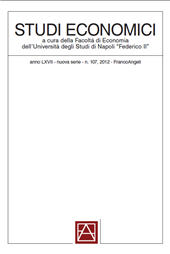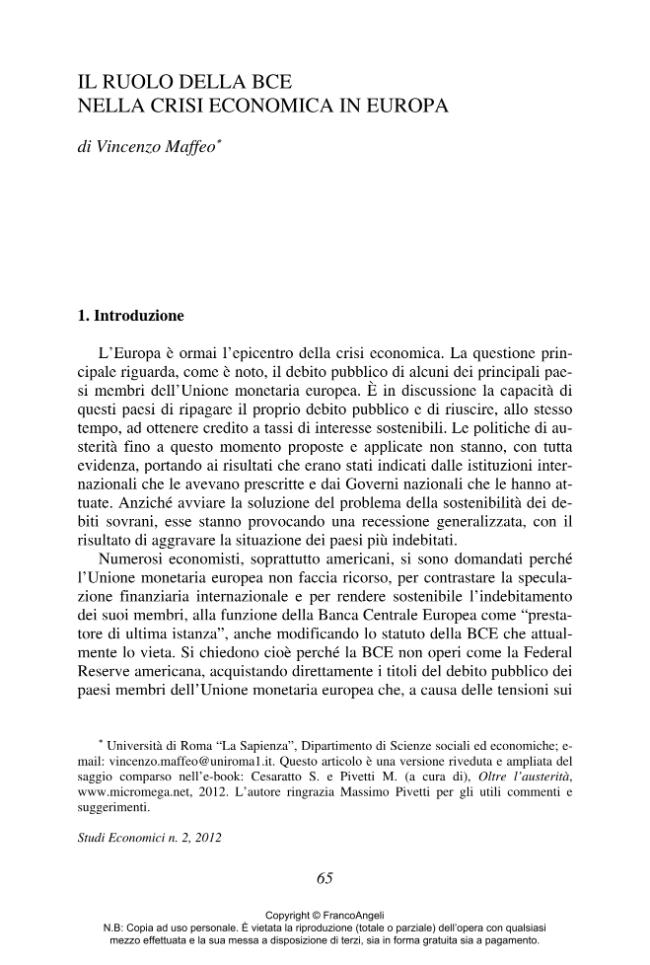Il ruolo della BCE nella crisi economica in Europa
P. 65-83 p.
The purpose of the paper is to analyze the role played by the ECB in the economic crisis in Europe, especially in connection with the issue of the sustainability of public debt in some of the major countries of the European Monetary Union. To this end, a comparison is made with the "divorce", in Italy in 1981, between the Treasury and the Central Bank. It demonstrates that the independence achieved by the Bank of Italy through this "divorce", in addition to allowing for a more stable exchange rate policy, also had the objective of laying down such an institutional set-up able to hinder expansive fiscal policies, seen as an element that could cause wage growth and a profit squeeze. The same objective seems to be at the basis of the founding of the European Monetary Union, by means of the rules of the Maastricht Treaty curbing public deficits and debts on the one hand, and ECB independence from any European political institution on the other. So as not to weaken, and instead strengthen this institutional set-up
and the income distribution that it contributes to maintaining, the EBC is not enabled to directly purchase the state securities of countries that are undergoing financial difficulties.
Fait partie de
Studi economici : 107, 2, 2012-
Articles du même numéro (disponibles individuellement)
-
Informations
Code DOI : 10.3280/STE2012-107003
ISSN: 1972-4918
DISCIPLINES
KEYWORDS
- Economic crisis
- Monetary policy
- Fiscal policy
- Income distribution
- European central bank
- European monetary union



